Clerics of the True Church of the Humanar
In in the The First Kingdom of Humankind, the The True Church of the Humanar plays an important role in the daily lives of nobility and commoners alike. It is the State Religion in that kingdom, and Church leaders are important advisors to rulers and administrators at all levels of government. Sometimes, they are more than advisors; they are judge and jury should transgressions against the teachings of Saint Ancelin be perceived. Because of this, the clerics of the Church - of all levels - are important people who are often looked to for guidance, at least in the First Kingdom.
One's ancestry must be full Human or Halfling. Hybrid parentage involving anything other than Human or Halfling is disqualifying. Ancestry is traced back six generations for determinations of this qualification.
One must be truly dedicated to the Humanar Deities.
One must demonstrate some knowledge of the Teachings of Saint Ancelin, the sacred scripture of the Church
One must be committed to a life of obedience to those of higher station in the Church.
The duties of a Servant of the Church involve ministering to the local folk who seek guidance and help. Daily worship ceremonies are performed in the local temple. Naming ceremonies, life-bondings, funerary services, and minor implorations to the gods for healing are also among the regular duties. In more pastoral assignments, implorations for better crop yields, or healthier animal stock may be called for; in urban settings, prayers for success in business are often requested. Folk will often form close confidences with Servants, and will occasionally seek guidance in various life matters whether they by religious or secular in nature.
It is not uncommon for a cleric of the True Church to spend their entire lives as Servants of the Church.
A Pastor is more than a manager; they are also mentors to the Servants assigned to them. They may be asked about the best way to respond to a situation or request that the Servant has encountered. In addition to the secular leader the Pastor is assigned to, more notable commonfolk - business owners or village leaders, for example - may come to the Pastor directly for guidance or favor requests. All these are to be handled graciously and in the spirit of Saint Ancelin's teachings.
Pastors hold the fourteenth position in the Order of Precedence of the First Kingdom.
Most Prelates are assigned to larger geographical regions: entire marches, counties, or larger cities; they are the official Church advisors to the Marklords, Earls, and High Lords Mayor within the First Kingdom. In this capacity, they are also responsible for administrative handling of all Pastors within their region of control. Some Prelates, however, are elevated in order to fill positions as Adjuticants and Inquisitors - positions which have very different responsibilities and spheres of control.
While Prelates still perform their necessary daily rituals and prayers, they rarely do so as ministers to the common folk - personal and family favors aside.
Prelates hold the twelfth position in the Order of Precedence within the First Kingdom.
There are only eight Archprelates at any given time. Five are assigned to the secular Duchies of the First Kingdom, where they advise in their role as voice of the Church . One serves as Grand Adjudicant, and one as Grand Inquisitor. The remaining one is responsible for all Church holdings and clerical assignments beyond the borders of the kingdom.
Archprelates hold the fifth highest tier in the Order of Precedence within the First Kingdom.
The First Servant is the final authority on Church doctrine. They are the Voice and Spirit of Saint Ancelin. They have the authority to wield the Saint Ancelin's Stylus of Law to establish new Church doctrine. Should they decide that any of the secular leaders of the kingdom - including the High Sovereign - are acting against the doctrine of the Church, they can call for the leader to be deposed.
Nominally, the First Among Servants is second in the Order of Precendence of the First Kingdom, beneath only the High Sovereign. BUt in a real sense, the holder of this office is the most powerful individual in the entire kingdom.
There are Five Adjudicants. Nominally, they are each assigned to one of the Duchies in the Kingdom, but crossover is possible. In addiotion, an Archprelate serves as Grand Adjudicant, managing the case load of the five, and personally handling any cases that involve heresies that may arise outside the First Kingdom itself.
Inquisitors often employ teams of non-ordained people who specialize in investigatory practices and the "extraction of truth". In private, the common folk refer to these as torturers. It is these minions that cause even the suggestion of calling an Inquisitor to strike fear in to a member of the population.
Ranks and Responsibilities
The qualifications for joining the clerichood of the True Church are seemingly simple, and yet can be quite restrictive:Acolyte of the Church
Anyone who presents themselves for acceptance into the clergy and meets these qualifications undergoes a dedication ceremony and is admitted as an Acolyte. Acolytes take up residence in one of the formal schools maintained by the Church for the purpose of preparing those for service in the clerichood. These schools are called Cloisters, a name which reflects the sheltered life of the Acolyte. At this time, one's sole responsibility is to learn what they are being taught. First and foremost, this consists of a deep understanding of the Teachings of Saint Ancelin as interepreted by Church hierarchy over the years, and the correct peformance of the various rituals that clergy are expected to conduct. Some attention is also given to ways to deal with the people who will be seeking their guidance and help in the future.Servant of the Church
Upon completion of the course of study at the Cloister, an Acolyte is eligible to undergo the First Rite of Ordination. Upon completion of this ritual ceremony, they become Servants of the Church and will begin the actual service as clerics. Most are assigned by Church Hierarchy to assist a Pastor in conducting the day to day activities required to guide the common folk of the kingdom through life. Those who showed exceptional aptitude during their studies may be selected to act as assistants - servants, actually - for a Prelate or Archprelate. Although the Church will not admit it, such assignments often have much to due with familial ties as they do aptitude.The duties of a Servant of the Church involve ministering to the local folk who seek guidance and help. Daily worship ceremonies are performed in the local temple. Naming ceremonies, life-bondings, funerary services, and minor implorations to the gods for healing are also among the regular duties. In more pastoral assignments, implorations for better crop yields, or healthier animal stock may be called for; in urban settings, prayers for success in business are often requested. Folk will often form close confidences with Servants, and will occasionally seek guidance in various life matters whether they by religious or secular in nature.
It is not uncommon for a cleric of the True Church to spend their entire lives as Servants of the Church.
Pastor of the Church
Servants of the Church that demonstrate superior administrative abilities, or who are under consideration by higher Church leadership for more important duties in the future may be elevated to the position of Pastor. After undergoing the Second Rite Ordination, they assume responsibility for the religious administration of a geographical region - a barony or a city district served by a particular temple. Their foremost duty is act as an advisor to the local Baron or Lord Magistrate to ensure that Church doctrine is observed in all matters. They are responsible for managing Servants assigned to them to see that the people are properly ministered to. Finally, they are occasionally called upon to perform the rituals and implorations that a Servants of the Church would usually handle if special requests arise.A Pastor is more than a manager; they are also mentors to the Servants assigned to them. They may be asked about the best way to respond to a situation or request that the Servant has encountered. In addition to the secular leader the Pastor is assigned to, more notable commonfolk - business owners or village leaders, for example - may come to the Pastor directly for guidance or favor requests. All these are to be handled graciously and in the spirit of Saint Ancelin's teachings.
Pastors hold the fourteenth position in the Order of Precedence of the First Kingdom.
Prelate of the Church
When the need to fill such a position arises, Pastors that show exceptional qualities and who have established a record of notable service in their roles as advisors may be elevated to the position of Prelate within the Church. After undergoing the Third Rite of Ordination, the new Prelate assumes duties as a member of the Church Hierarchy.Most Prelates are assigned to larger geographical regions: entire marches, counties, or larger cities; they are the official Church advisors to the Marklords, Earls, and High Lords Mayor within the First Kingdom. In this capacity, they are also responsible for administrative handling of all Pastors within their region of control. Some Prelates, however, are elevated in order to fill positions as Adjuticants and Inquisitors - positions which have very different responsibilities and spheres of control.
While Prelates still perform their necessary daily rituals and prayers, they rarely do so as ministers to the common folk - personal and family favors aside.
Prelates hold the twelfth position in the Order of Precedence within the First Kingdom.
Archprelate of the Church
Upon the death of an existing Archprelate, a Prelate is selected by the First Among Servants to replace them. The Fourth Rite of Ordination installs the candidate as an Archprelate. Only the most knowledgeable in the Teachings and the most dedicated to the Church are chosen for this honor.There are only eight Archprelates at any given time. Five are assigned to the secular Duchies of the First Kingdom, where they advise in their role as voice of the Church . One serves as Grand Adjudicant, and one as Grand Inquisitor. The remaining one is responsible for all Church holdings and clerical assignments beyond the borders of the kingdom.
Archprelates hold the fifth highest tier in the Order of Precedence within the First Kingdom.
First Among Servants of the True Church of the Humanar
The solitary leader of the True Church of the Humanar bears a title originally designed to remind the entire hierarchy that their first purpose is to serve the gods and the people. Upon the death of the current church head, the Archprelates choose one of their number to ascend to the position of First Servant. The Fifth Rite of Ordination ceremony makes this ascension official.The First Servant is the final authority on Church doctrine. They are the Voice and Spirit of Saint Ancelin. They have the authority to wield the Saint Ancelin's Stylus of Law to establish new Church doctrine. Should they decide that any of the secular leaders of the kingdom - including the High Sovereign - are acting against the doctrine of the Church, they can call for the leader to be deposed.
Nominally, the First Among Servants is second in the Order of Precendence of the First Kingdom, beneath only the High Sovereign. BUt in a real sense, the holder of this office is the most powerful individual in the entire kingdom.
Special Occupations Within the Clergy
There are two classifications of occupations within the First Church clergy that are specialized, and which are not associated with the daily ministrations of temples or the advising of secular leaders. They are, however, considered to be of the utmost importance in maintaing the purity of the Church and its adherence to the intentions that Saint Ancelin first established many years ago.Adjudicant
Prelates who are installed as Adjudicants are responsible for monitoring the activities of anything and everything within the First Kingdom that may negatively impact the True Church and its position of authority. They are the judges in all cases of heresy that the Church encounters.There are Five Adjudicants. Nominally, they are each assigned to one of the Duchies in the Kingdom, but crossover is possible. In addiotion, an Archprelate serves as Grand Adjudicant, managing the case load of the five, and personally handling any cases that involve heresies that may arise outside the First Kingdom itself.
Inquisitor
Working closely with the Adjudicants are the Inquisitors. These specially assigned Prelates are responsible for the investigation of the heresies, determining whether or not sufficient cause exists to bring a case to an Adjudicant. (In practice, once the Inqusitors are called into action, it is quite rare that heresy charges will not be brought.)Inquisitors often employ teams of non-ordained people who specialize in investigatory practices and the "extraction of truth". In private, the common folk refer to these as torturers. It is these minions that cause even the suggestion of calling an Inquisitor to strike fear in to a member of the population.

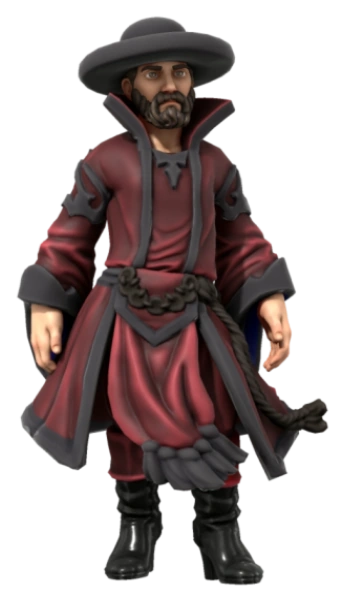
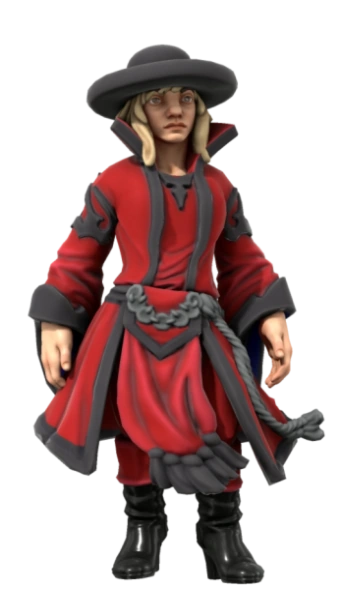
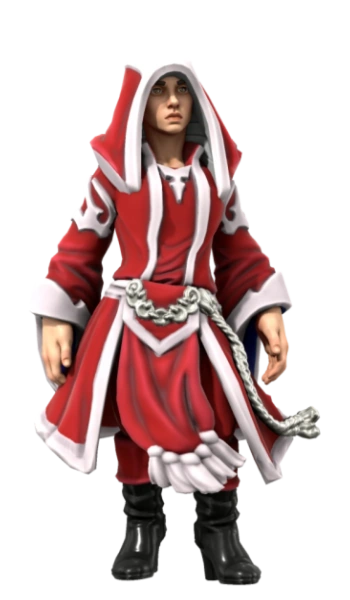
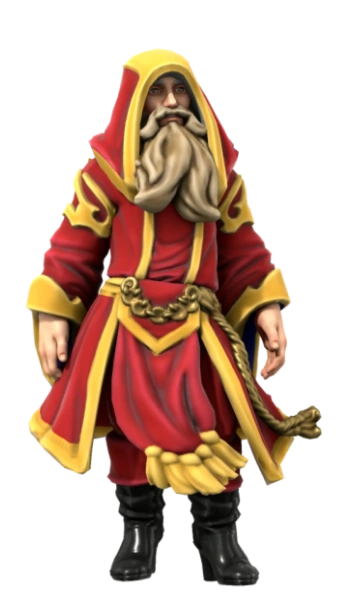
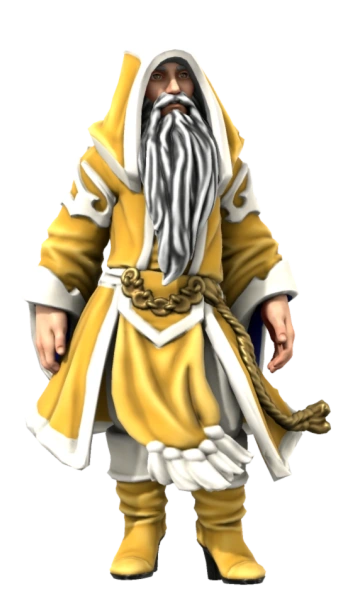


Comments